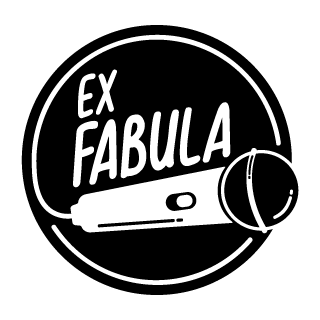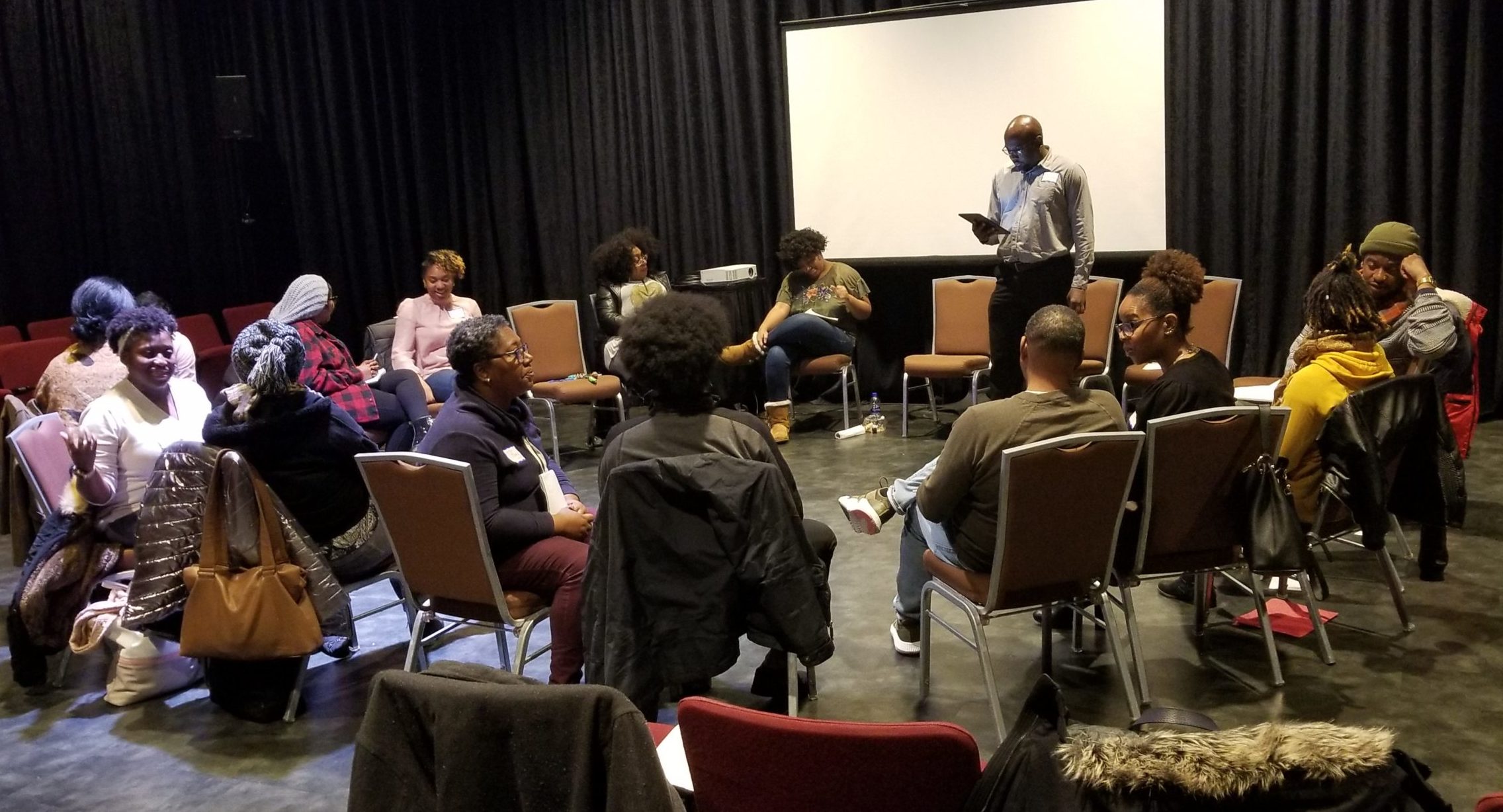A Q&A with the lead coaches of Ex Fabula’s Black Professionals Affinity Workshops
Q&A with De’Shawn, Ex Fabula Coach:
- Why are you leading this workshop?
- I am leading this workshop because it has always been a desire of mine to help people meet with one another, to discuss their stories, and to just have a venue to just share who they are in the most authentic way possible. Being able to do a workshop with Black professionals, it just gives us the opportunity to just be in our own element, in our own space, not have to self-edit, and then also prepare ourselves to tell the stories in a way that others will be able to get the true, the raw, the grit of what we are doing and who we are.
- What was something someone said that resonated w/ you personally?
- For me, it’s just, I think, a number of people have talked about just the power of being able to share and hear the stories of others. I think the power of listening is something that has really resonated with me; how many people are just like, “wow, it just good to hear another perspective from someone that can identify with what I’ve been through.” So, I think that, just in itself, says that this is necessary, that this is important.
- Would you like to see any other topics covered in these workshops?
- Oh, wow… I don’t know if I could think of any off the top of my head, other than… I think anything you pick is something we could talk about from the perspective of Blackness and professional. So, I just think that there is a gambit that we could pick and choose from. At this moment, I don’t have just one that comes to mind. Umm… I think, one I would probably say is just “misunderstandings.” Something I would think of looking at; what are some misunderstandings that we’ve had to clarify as being Black.
- How do you think these workshops carry out Ex Fabula’s mission?
- I believe it is the mission, of just connecting people through stories. The power of hearing someone else’s voice that resonates with you, not just on a basic level, but even on a more molecular level. Where something triggers you to be like, “wow, I’m there. I’m in that moment with you, my soul is there with you, my spirit is there; it feels what you’re going through.” So, that is the essence of connecting Milwaukee through stories. Having that space to be able to, just, feel and link with someone that you might not even known before this moment.
- Why/how did these affinity spaces impact your perspectives on brave spaces to share or listen?
- It allows me to, just, affirm, confirm, that there is no such thing as a safe space, but a brave space is a space where you can speak your truth, and your truth be heard and recognized. So even if you’re truth is not agreed with, it’s your truth. But, also, at the same time, to just hear it and to even say, “okay, this is my truth, but does my truth have to be my truth for the rest of my life.” Right? “What can I do to see the truth of others?” And maybe even lean to say, “okay, that could be also incorporated into my truth, my true essence, who I am.” So, I think, taking from one another, is where I think a brave space truly exists.
Q&A with Rochelle, Ex Fabula Coach:
- Why are you leading this workshop?
- Well, part of it’s I-I do, maybe it’s because, I relate to a time when there wasn’t spaces like this. To have a formalized space. Before there just used to be, maybe running into your co-worker in the parking lot or the bathroom, and you could say a little bit then, and to have validation. As much as there is going on weird with society, with Black and white, and all the other things in between, it’s nice to have a dedicated space where we can have our stories validated.
- What is something someone said that resonated w/ you personally?
- The feeling of having to be restrained while having anger on the inside, but still having to function normally. I’ve heard that and it’s definitely something that resonates.
- Would you like to see any other topics covered in these workshops?
- I would like to see an intersection of women of color in the mainstream workplace. I think it’d be cool, also, to see, women of color, in particular, in non-profits. I think there’s a lot of untold stories there and a lot of the people who are down on the ground, doing the work, are women of color, and a lot of the people that are also in admin are women of color. And non-profits have a weird underbelly and it’d be neat to explore that.
- How do you think these workshops carry out Ex Fabula’s mission?
- I definitely think that it strengthens community bonds. When you come in here, even before the workshop happens, there’s a comradery and a warmth; there’s already telling of stories and I think it really has potential to strengthen community bonds once some of these stories are told outside of these walls into spaces that aren’t just Black. Here’s a space where people can find the strength and finesse things so that they can take these stories our of these walls into other avenues.
- Why/how did these affinity spaces impact your perspectives on brave spaces to share or listen?
- What it did was, it reinforced what I’d already known about brave spaces. I don’t know if I had the language to call them that before. I knew that there was a certain comfort in being, even, yah know, I think about growing up in the Black church. It’s a natural thing. I didn’t realize it was so freeing until I got away from it. Getting my hair done on Saturdays at Miss Thelma’s, and you can smell the pressing comb. That was all, those were all safe spaces, or brave spaces, where there was a commonality of language and experiences. And so, having this space here, just kind of reaffirms that I kind of miss that. We didn’t call it that back then, but that’s really what’s happening. We’re kind of recreating that kind of space here.
Ex Fabula’s Brave Space project is possible thanks to a $15,000 grant from the Greater Milwaukee Foundation’s Gerda A. Debelak Fund; grants from the Milwaukee Arts Board and the Wisconsin Arts Board with funds from the State of Wisconsin and the National Endowment for the Arts; a grant from the We Energies Foundation; CAMPAC; and the support of Ex Fabula members.






Leave A Comment